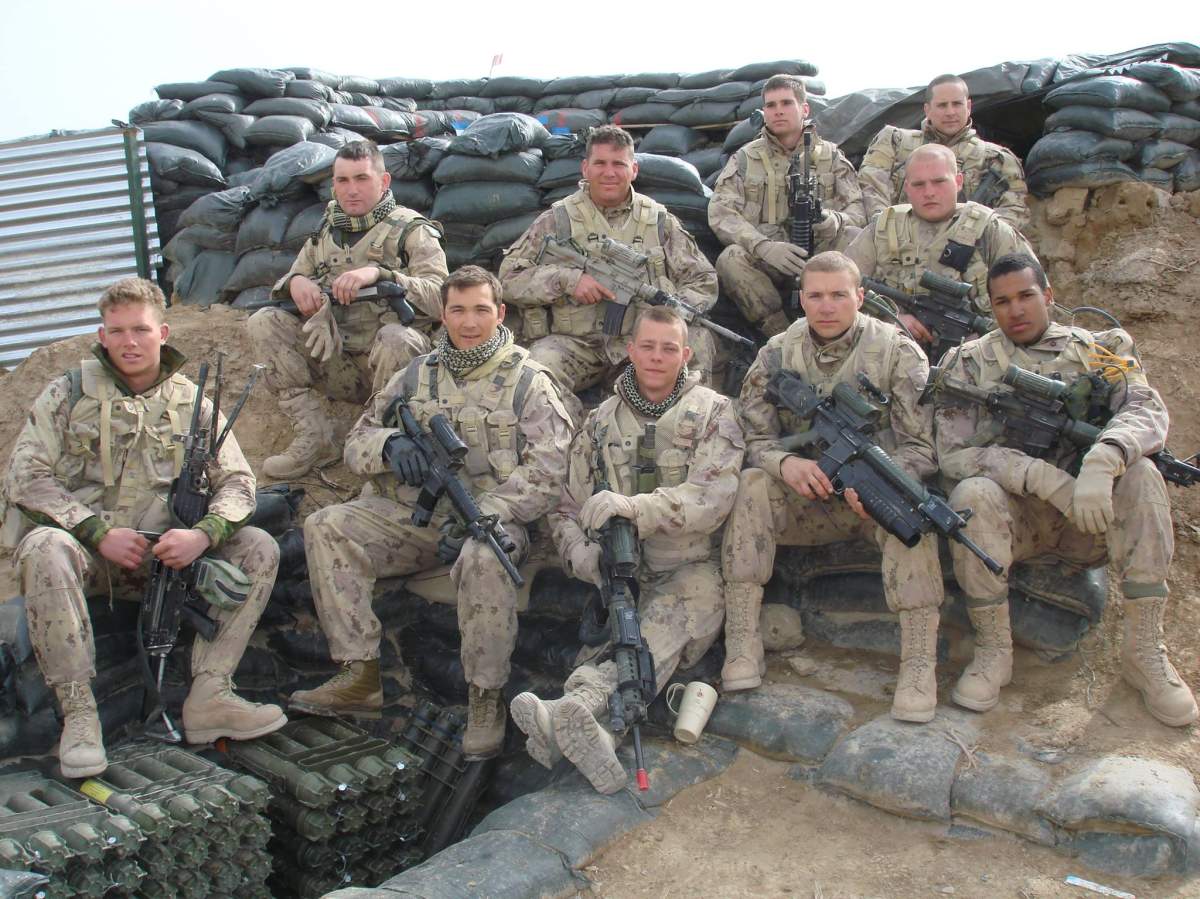Veterans advocates say the federal government isn’t moving quickly enough to keep current and former soldiers from taking their own lives, just as a former Canadian Forces member was identified as one of four people found dead in an apparent murder-suicide in a rural Nova Scotia home.

On Tuesday, four people were found dead in the home; the victims were identified as 33-year-old military veteran Lionel Desmond, his wife Shanna Desmond, 31, their 10-year-old daughter, Aliyah, and his mother, Brenda, 52.
A family member told Global News that Lionel Desmond was a veteran who had recently served in Afghanistan and had been seeking treatment for post-traumatic stress disorder (PTSD).
READ MORE: Military veteran among 4 family members shot in apparent Nova Scotia murder-suicide
At least 54 Canadian military members have taken their own lives since 2014, including 15 members last year, according to one estimate, and advocates say Ottawa isn’t doing enough to address a life-or-death situation.
“Suicide has been an issue that has not been a priority [for the federal government],” said Michael Blais, president and founder of the Canadian Veterans Advocacy. “We have veterans coming forward and they are being put into a system where it takes months if not years to get the effective treatment that they need.”
The NDP’s former long-time Veterans Affairs critic, Peter Stoffer, called progress on addressing suicides in the military “excruciatingly slow.”
“There is absolutely no reason at all why the government can’t be moving much, much quicker,” Stoffer said. “We still aren’t there yet. We simply do not have enough human or financial resources in place, in order to assist our men and woman who suffer from (PTSD).”

Get daily National news
Veterans Affairs Minister Kent Hehr was tasked in his mandate letter from Prime Minister Justin Trudeau with developing a suicide-prevention strategy, in conjunction with the Defence Department, for veterans and current CF members that is “current, efficient and implements best practices.”
Veterans Affairs said it is working closely with Defence to update the suicide-prevention policy and to ensure all eligible veterans and their families “have the mental health support they need, when they need it.”
WATCH: Veterans advocate Peter Stoffer says those who suffer PTSD aren’t getting enough help from the federal government.

“This is a terrible tragedy and our thoughts are with the family and friends of the deceased,” a spokesperson for Veterans Affairs said in a statement Wednesday. “We are committed to getting this right for the men and women who have served this country. I encourage anyone struggling to reach out to Veterans Affairs and get the support they need.”
Veterans Affairs said a draft of the “Departmental Suicide Strategy will be ready by the Fall of 2017.”
In federal accounting books, three programs are listed under the heading, “financial, physical and mental well-being of eligible veterans.”
Actual spending on those programs at Veterans Affairs increased only two per cent to $3.54 billion in 2015-16 from $3.45 billion in 2014-15, according to the Public Accounts of Canada. Planned spending for this year is pegged lower than last year, at $3.51 billion, according to estimates published at the beginning of the fiscal year.
READ MORE: At least 54 Canadian military members have committed suicide since 2014
Richard Wright, vice-president of Canadian Association of Veterans in United Nations Peacekeeping, says the government has taken steps to increase access to mental health for veterans, but “it’s still nowhere near enough.”
“A lot of them are very proud veterans and they figure they can work through this from themselves,” Wright said. “We know that is not the case, they cannot work through it by themselves and they have to get professional help.”
The Canadian military has struggled in the past to recruit new psychiatrists, psychologists and social workers to deal with the suicide crisis in the military. A report in 2015 found government salaries weren’t high enough in some parts of the country to attract the necessary mental health professionals.
READ MORE: ‘Self-stigma’ remains a barrier for military mental health: psychiatrist
Glynne Hines, head of the Royal Canadian Legion’s Operational Stress Injury Special Section, said whenever there are suicides amongst veterans and CF members, it means Canada isn’t moving fast enough.
“We’ll never get the number down to zero, but we will have to do better,” said Hines. “The way we are going to do better is by having an effective suicide prevention framework that can be implemented for Canadian forces members and veterans and the fact that we don’t have one contributes to the suicides that we are seeing.”
The Liberals have already re-opened several of the nine veterans offices closed under the previous government. Those that haven’t will be within the year, Hehr recently said.
If you or someone you know is in crisis and needs help, resources are available. In case of an emergency, please call 911. 911 can send immediate help. The Canadian Association for Suicide Prevention, Depression Hurts and Kids Help Phone all offer ways for getting help if you, or someone you know, is suffering from mental health issues.
— With files from Heide Pearson and Natasha Pace









Comments